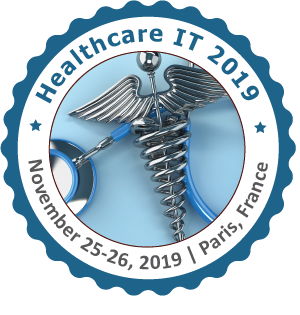
Gihan Nabil Mahmoud
Prince Sultan Oncology Center, Saudi Arabia
Title: An audit of compliance with the British Society for Haematology (BSH) guideline on red cell transfusion in sickle cell disease (SCD)-Part II: Indications for transfusion
Biography
Biography: Gihan Nabil Mahmoud
Abstract
Introduction: Sickle cell disease (SCD) is a recessively inherited hemolytic anemia with a wide spectrum of complications. Red cell transfusion in SCD has certain indications aiming to increase tissue delivery of oxygen since HbS is known to be a low affinity Hb and so delivers oxygen at a lower partial pressure of oxygen compared to HbA. Red cell transfusion can be a lifesaving treatment for patients with SCD so compliance with its indications is the responsibility of the medical team as well as the caregivers to ensure the best quality of care is given to this entity of patients. The British Society of Hematology (BSH) has published guidance on the indications for red cell transfusion in SCD. This audit will review compliance with some of the level 1 recommendations made.
Methods: This is a retrospective review of patients with sickle cell disease who are following in King Salman Armed Forces Hospital. The target population was children with SCD had age range of one to 15 years. Indications of red cell transfusion were tracked in the patients who attended for follow up during January and February 2019, in order to audit a compliance with the recommended guidelines on red cell transfusion in patients with SCD as advised by the BSH. Results and percentages of the descriptive analysis of the data are presented in tabulated and graphical form.
Results: The data of 50 consecutive patients (30 males and 20 females) with SCD who have attended the hospital in January and February 2019 were collected. Sixty percent and 44% compliance were met in patients who need primary and secondary prevention of stroke, respectively, and who are in need to achieve a HBS level of less<30% using transfusion/exchange program. Other identified patients with acute complications and pre-operative requirements met the BSH guidance with 100% compliance rate. A re-audit was performed in July 2019, after setting a bundle of recommendations. There was full compliance in all chosen standards following the required modification.
Conclusion: Regular auditing is beneficial in detecting the reasons behind
incompliance to the standards, finding ways to solve them and overcome the obstacles that could jeopardize the patient care.

